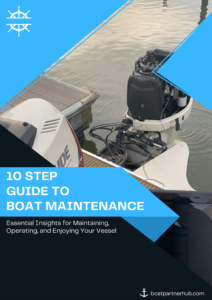Blog
Fuel Efficiency at Sea: DIY Tips to Save on Fuel Consumption

Unlocking Smooth Sailing: Top Strategies for Enhanced Fuel Efficiency at Sea
Navigating the vast oceans and exploring the beauty of the sea can be a thrilling experience, but it often comes with high fuel consumption. As avid sailors and sea enthusiasts, we understand the importance of preserving our marine environment and saving on fuel costs. In this comprehensive guide, we will share valuable DIY tips to enhance fuel efficiency at sea without compromising on the quality of your journey.
1. Optimize Your Boat’s Propeller
The propeller plays a vital role in the fuel efficiency of your boat. Ensure that your propeller is the appropriate size and shape for your vessel, as an ill-fitted propeller can lead to increased fuel consumption. Regularly inspect the propeller for damage or wear, and consider investing in newer, more efficient propeller designs.
2. Maintain a Clean Hull
A clean hull significantly reduces drag, allowing your boat to move smoothly through the water. Barnacles and algae accumulation can increase fuel consumption, so it’s essential to clean your boat’s hull regularly. Consider applying antifouling paint to prevent marine growth, thereby enhancing fuel efficiency.
3. Monitor and Adjust Trim
Properly adjusting your boat’s trim ensures that it maintains an optimal position in the water. A well-balanced trim reduces resistance, enabling your boat to use less fuel to achieve and maintain the desired speed. Experiment with different trim settings to find the most fuel-efficient position for your vessel.
4. Reduce Weight and Unnecessary Load
Excessive weight on board can lead to higher fuel consumption. Before embarking on your sea adventure, evaluate the necessity of each item on your boat. Remove any unnecessary items that only add weight without contributing to your comfort or safety. Additionally, carry only the amount of fuel and water required for your trip to lighten the load.
5. Choose the Right Fuel Type
Selecting the appropriate fuel type for your boat’s engine can have a significant impact on fuel efficiency. Consult your boat’s manual or a marine expert to determine the most suitable fuel for your engine’s performance. Premium, ethanol-free fuels are often recommended for improved efficiency.
6. Practice Smooth and Steady Cruising
Erratic speed changes and sudden accelerations can lead to higher fuel consumption. Practice smooth and steady cruising, maintaining a consistent speed whenever possible. Avoid over-revving your engine, and utilize your boat’s momentum to glide through the water smoothly.
7. Embrace Wind Power
When weather conditions allow, harness the power of the wind to reduce fuel usage. Rely on your sails or other wind-assisted technologies to supplement your engine’s power. Not only will this save fuel, but it will also enhance the overall sailing experience.
8. Stay Informed about Weather Conditions
Keeping track of weather forecasts is crucial for efficient voyage planning. Avoiding rough weather and strong currents can help you navigate more smoothly, reducing fuel consumption and ensuring a safer journey.
9. Perform Regular Engine Maintenance
Regular engine maintenance is essential to ensure optimum performance and fuel efficiency. Change the engine oil, replace filters, and inspect other critical components as recommended by the manufacturer. A well-maintained engine operates more efficiently and lasts longer.
10. Collaborate with Other Boaters
Traveling with other boats in a group can promote fuel efficiency. By sailing in a formation, you can take advantage of reduced drag and save fuel. Additionally, sharing navigation tasks and resources with other boaters can lead to a more economical journey.
Conclusion
By implementing these DIY tips for fuel efficiency at sea, you can enhance your boating experience while reducing your environmental impact and cutting down on fuel costs. Remember to optimize your boat’s propeller, maintain a clean hull, and monitor the trim for smooth cruising. Be mindful of your boat’s weight and fuel type, and embrace wind power whenever possible. Stay informed about weather conditions, prioritize regular engine maintenance, and consider collaborating with other boaters to maximize fuel savings. With these practical steps, you’ll enjoy more efficient and eco-friendly voyages on the open waters. Happy sailing!


